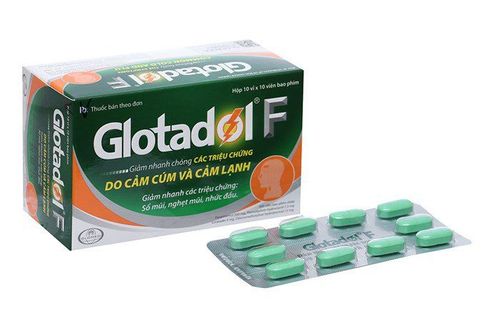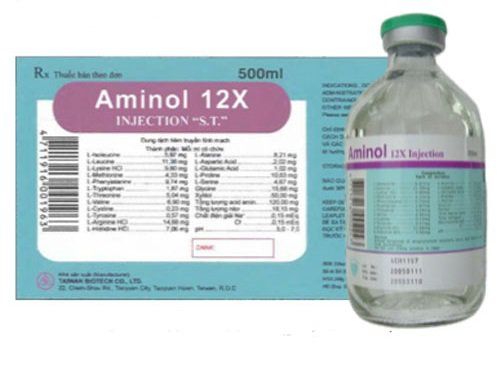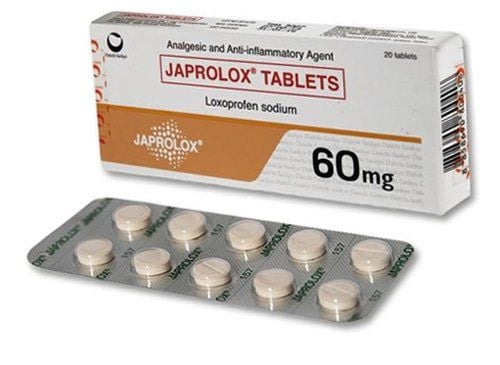This is an automatically translated article.
Alphadaze is an anti-inflammatory drug used in the treatment of edema after trauma or surgery such as sprains, acute injuries, soft tissue injuries, hemolysis, hematomas, eyelid edema, trauma caused by sports, cramps,... To ensure effective use, patients need to strictly follow the instructions of doctors and medical staff.
1. Effects of Alphadaze
Alphadaze belongs to the group of non-steroidal anti-inflammatory and antipyretic analgesics. Alphadaze is effective in the treatment of edema after trauma or surgery for example in some cases such as:Soft tissue injury Acute trauma Sprain Tissue bruising Hematoma Hemolysis Bruising Infection Eyelid edema Cramps Sports injuries Loosens respiratory secretions in patients with bronchitis, asthma, pneumonia and sinusitis. In addition, some other effects of the drug are not listed on the approved drug label, but in some cases, the doctor may prescribe Alphadaze to use. Therefore, before taking the medicine, consult your doctor.
2. How to use Alphadaze
Alphadaze is available in tablet form. Dosage will be based on the condition and age of the patient. For cases of anti-inflammatory, treatment of edema after injury or surgery, the drug can be used orally with a dose of 4.2mg, taken 3-4 times a day. Or suck on the lozenge from 4-6 tablets a day divided into several times so that the tablets gradually dissolve under the tongue. Patients can take the drug with or without food, before or after eating. However, to reduce stomach irritation you can take it with food and need to swallow the tablet whole with a full glass of water, do not chew or break the tablet.
To use the drug safely, take Alphadaze exactly as directed by your doctor, do not use more, smaller or longer than prescribed. Use Alphadaze regularly to get the most benefit from it and you can stop taking it if any new symptoms appear or your condition does not improve. Patients absolutely do not abuse the drug for too long for a long time. This does not make the patient's condition better, but also increases the risk of unwanted effects.
3. Undesirable effects when using Alphadaze
Alphadaze can cause some unwanted side effects. Some studies have shown that at commonly used doses enzymes are not detected in the blood after 24-48 hours. Temporary side effects may be seen but disappear after treatment is stopped or the dose is reduced such as changes in stool color, odor or solidity. Some special cases may have digestive disorders such as heaviness in the abdomen, flatulence, constipation, diarrhea and nausea. With high doses, mild allergic reactions such as redness of the skin may occur.
Before prescribing drugs, doctors always consider the benefits and effectiveness of Alphadaze. When using Alphadaze can still occur unwanted effects. Therefore, when there are unusual symptoms, especially when a severe allergic reaction occurs with accompanying signs such as severe dizziness, difficulty breathing, rash, ... the patient needs to be informed. Immediately notify the doctor or nurse for immediate medical intervention.
4. Some notes when using Alphadaze
Some notes when using Alphadaze include:
Allergy notice to Alphadaze hypersensitivity reaction to any other allergy. Alphadaze may contain ingredients that don't work and could cause an allergic reaction or other serious problems. Report any medications you are taking including prescription and nonprescription drugs, herbs and supplements, foods, dyes or preservatives. Alphadaze is contraindicated in patients with reduced alpha-1 antitrypsin. Patients with chronic obstructive pulmonary disease (COPD), especially emphysema, and patients with nephrotic syndrome, are at risk for decreased alpha-1 antitrypsin. Patients who should not be treated with enzymes include: people with an inherited blood clotting disorder, that is hemophilia, people with a clotting disorder that has no genetic predisposition, people who have recently experienced or undergoing surgery, patients on anticoagulant therapy, allergic to proteins, peptic ulcers, pregnant or breastfeeding women. If you forget to take a dose of Alphadaze, take it as soon as possible. However, if it is close to the time of your next dose, skip the missed dose and continue taking or injecting the medicine as scheduled. Do not use more drug than the treatment regimen. Alphadaze overdose or ingestion can cause serious symptoms such as nausea, vomiting, abdominal pain, shortness of breath, fainting,...
5. Drug interactions
Drug interactions can decrease the effectiveness of Alphadaze, or increase the effect of unwanted effects. Tell your doctor about all other medicines you are taking including over-the-counter medicines, vitamins, prescription drugs, and herbal products. Do not start, stop or change the dose of any medicine without your doctor's consent.
Some drugs that can interact with Alphadaze include:
Acetylcysteine Anticoagulants
6. How to store Alphadaze
Store Alphadaze with film-coated tablets at room temperature below 30 degrees Celsius, protected from light and away from moisture. Do not store Alphadaze in a humid place or in the freezer and keep away from heat and open flames. Different medicines will have different storage methods, so read the Alphadaze storage instructions carefully on the package, or ask your pharmacist. Keep Alphadaze out of the reach of children and family pets. When the medicine has expired or is damaged and cannot be used anymore, dispose of it and dispose of it properly. Do not arbitrarily dispose of Alphadaze into an environment such as a water pipe or toilet unless requested to do so. Please consult your waste management company or pharmacist on how to safely dispose of Alphadaze to help protect the environment.
In summary, Alphadaze is an anti-inflammatory drug that is effective in the treatment of edema after trauma or surgery such as in the case of soft tissue damage, acute trauma, hematoma, hemolysis, bruises, sprains, etc. infections, eyelid edema, cramps, sports injuries, tissue bruising,... However, Alphadaze can cause some unwanted effects and drug interactions, so tell your doctor. your doctor the medicines you are taking to reduce the risk of unwanted effects and at the same time increase the effectiveness of the treatment process.
Follow Vinmec International General Hospital website to get more health, nutrition and beauty information to protect the health of yourself and your loved ones in your family.
Please dial HOTLINE for more information or register for an appointment HERE. Download MyVinmec app to make appointments faster and to manage your bookings easily.













